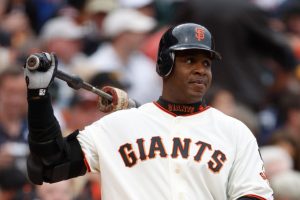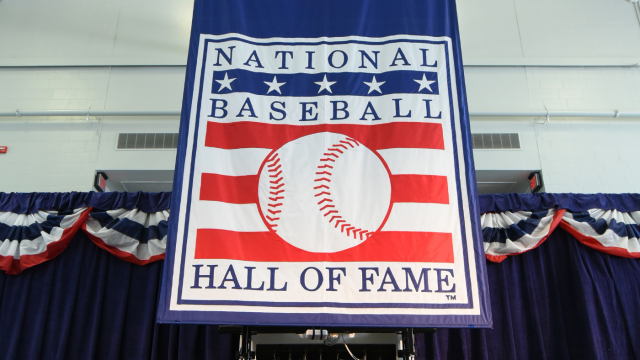Baseball Hall of Fame Leaves Out Key Names… Again
Joe Debari
Sports Writer
With Major League Baseball (MLB) still mired in its lockout with the MLB Players Association (MLBPA), baseball news has been seldom since the lockout started on December 2nd. Luckily, there has been some new baseball news for fans to talk about, with the annual Hall of Fame vote. Each year, a panel of journalists appointed by MLB votes on up to ten names on the active Hall of Fame ballot to join the Hall of Fame. A player is not eligible to be on the ballot until five years after their retirement, and they can stay on the ballot for up to ten years. To stay on the ballot, a player must get at least five percent of the vote. If they fall short of that threshold, the player is taken off the ballot even if it has not been ten years. There are also players selected to the Hall of Fame from certain overlooked eras in the league by a separate panel of voters.
This past December, the Golden Years Era committee, focused on players who played between 1950 and 1969, voted Gil Hodges, Jim Kaat, Minnie Miñoso, and Tony Oliva into the Hall. The Early Baseball Era committee, focused on players who played prior to 1950, voted Bud Fowler and Buck O’Neil in. Hodges played 18 years in the league mostly for the Dodgers during their time in Brooklyn as well as following their move to Los Angeles. Hodges mostly played first base for the Dodgers. Kaat was a lefty pitcher who played for several teams including the Chicago White Sox and St. Louis Cardinals. Minoso was born in Cuba and played in the Cuban baseball league before coming to the States and playing in MLB where he got the nickname, “The Cuban Comet”. He played mostly for the White Sox at left field and third base during his illustrious career. Oliva played his entire 15-year career for the Twins where he played right field and designated hitter. Fowler is arguably the least known player who was elected to the Hall of Fame this year, but his impact is immense as he is one of the earliest recorded African Americans to play any type of organized baseball. O’Neil played his entire career in the Negro Leagues (an organized baseball league that consisted of only African Americans) and became the first African American coach in Major League Baseball.

The Hall of Fame ballot this year only saw one player voted in while several other well-known players saw their ten-year tenure on the ballot come to an end without getting into the Hall. Boston Red Sox designated hitter David Ortiz, known as “Big Papi” during his time with the Sox, was the only player to be voted in. Ortiz received 77.9% of the vote, just over the required 75% of the vote needed to be inducted into the Hall. However, the bigger news was those players who did not get in. There were several players all entering their tenth and final years on the ballot: Sammy Sosa, Curt Schilling, Roger Clemens, and Barry Bonds. All four players were undoubtedly great and would be guaranteed Hall of Fame members had they not been associated with the steroid era of baseball where many players were caught taking performance enhancing drugs in a time where many players were believed to be taking them.
It has been widely debated by baseball fans about whether these players who have been caught using steroids should be voted in. Some fans believe that players should still make the Hall from the steroid era because they were mostly facing other players who were also taking steroids that the public just does not know about, so there was an even playing field. But other fans believe that players who take steroids should be barred from the Hall for breaking the core rules of baseball and should not be rewarded for their cheating. These viewpoints got even murkier today when Major League Baseball announced that for the time being, they are going to stop testing players for steroids for the first time in 20 years. The reason for this is the lockout as league employees are not supposed to be interacting with any player on a Major League 40-man roster, making it difficult to obtain urine samples for drug tests. But the impact could extend into the season with players now having a window to take steroids without repercussions leading up to the season, whenever it starts due to the lockout.
Regardless, baseball fans will be able to appreciate the legendary careers of the inducted Ortiz, Hodges, Kaat, Miñoso, Oliva, Fowler, and O’Neil. With the scheduled date for Spring Training approaching at the end of February, the lockout still lurks over everything involving Major League Baseball. If players and owners are not able to agree on a new CBA before Spring Training is scheduled, it will be delayed and so will the Major League regular season which would make it the second year in a three-year span to not play the full 162 game schedule after the COVID-19 pandemic shortened the 2020 season from 162 games to 60 games. Fueling yet another discussion point for Hall of Fame barstool arguments.
Contact Joe at joseph.debari@students.shu.edu

